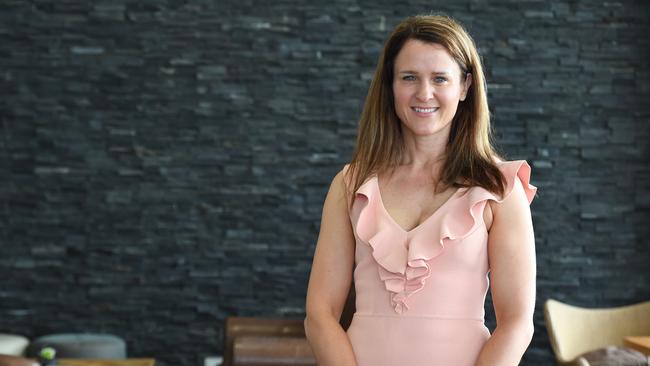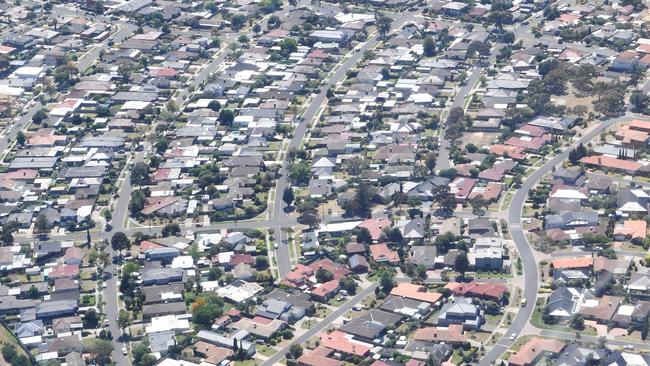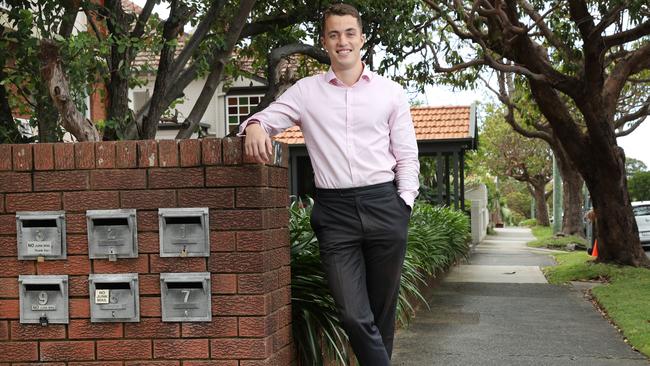Where Australia’s house prices are heading in 2021
First home buyers and real estate investors who were hoping to snap up a bargain from a COVID-19 house price fall are set to be disappointed. Here’s why.
Investing
Don't miss out on the headlines from Investing. Followed categories will be added to My News.
First home buyers and real estate investors who were hoping to snap up a bargain from a COVID-19 house price fall are set to be disappointed.
Home values in all states have been resilient this year and economists and real estate specialists say not even the looming end of JobKeeper and Australia’s immigration slump will shatter this strength.
The latest figures from CoreLogic show prices in every capital city except Perth have climbed over the past 12 months despite the worst economic crisis since World War II.
And CommSec is forecasting price growth in all capital cities in 2021 except Melbourne, which it expects to drop just 0.7 per cent.
AMP Capital chief economist Shane Oliver said there was “more positivity” around housing than earlier this year – when some forecasts a 30 per cent fall – but the outlook varied between cities.
“Melbourne has seen a much bigger hit to its economy and will need longer to recover,” Dr Oliver said.

High-rise apartments in major capital cities remain a weak spot, with oversupply forcing some prices down 20 per cent, but BetaShares chief economist David Bassanese said traditional stand-alone homes looked solid, with no sign of forced selling.
“Those counting on a looming house price correction in the order of 15 to 20 per cent in stand-alone properties are going to be disappointed,” Mr Bassanese said.
CommSec senior economist Ryan Felsman said the biggest risks were the looming end of homebuyer incentives and mortgage repayment deferrals for COVID-affected borrowers.
But CommSec was forecasting house price growth in 2021 in Sydney of 2.9 per cent, Brisbane 1.6 per cent, Perth 1.9 per cent, Adelaide 1.4 per cent, Hobart 2.3 per cent, Darwin 0.9 per cent and Canberra 3.1 per cent.
“The housing market has held up pretty well,” Mr Felsman said.
Realestate.com.au chief economist Nerida Conisbee said worries about capital losses had been partially offset by “incredibly low” interest rates and easier finance.
“A lot of finance restrictions on lending have been relaxed,” she said.
Ms Conisbee said the end of JobKeeper in March 2021 might have less impact on prices than previously thought.

“The majority of people attached to JobKeeper do tend to be younger and employed in hospitality, tourism and education, and are renting,” she said.
Metropole Property Strategists CEO Michael Yardney said there were “too many vested interests in our property markets to allow them to collapse”.
“Our banking sector is underpinned by residential real estate loans, so the banks are not going to pull out the rug from under their customers,” he said.
“At the same time the government understands the importance of consumer confidence in hauling us out of this recession and into recovery.”
Low immigration levels would affect rental markets more than prices, because new immigrants tended to rent for a few years, Mr Yardney said.
Binnari Property managing director David Hancock said falling immigration had been partially offset by expats returning home during the pandemic and surging demand from first home buyers.
“I don’t think property prices are going to drop – people have to put their money somewhere,” he said.

Patrick Noll, 25, is planning to buy his first property in the coming months and said it would be an investment rather than somewhere to live himself.
This would deliver tax benefits and the freedom to live where he wanted, rather than being restricted to living where he could afford, he said.
“It’s always a good time to buy, provided you can afford the debt,” Mr Noll, a mortgage broker at Loan Market Lower North Shore, said.
“Being in the mortgage industry I’m seeing a tremendous amount of people generating wealth.
“The people who do really well by the time they are in their mid-30s are the people who started early,” he said.
Mr Noll said he was not concerned about the potential for short-term falls in home values.
“You have to understand it’s cyclical and goes in waves – if you hold for 20 or 30 years you are going to see that uplift regardless,” he said.
HOME VALUES IN THE PAST YEAR
City Houses Units
Sydney Up 7.2% Up 3.6%
Melbourne Up 0.3% Up 1.5%
Brisbane Up 4.3% Down 0.3%
Adelaide Up 4.3% Up 5.4%
Perth Up 0.1% Down 0.5%
Hobart Up 6.9% Up 4.7%
Darwin Up 5.4% Down 2.2%
Canberra Up 7.3% Up 4.8%
Source: CoreLogic
WHAT WILL DRIVE FUTURE DEMAND
• Ultra-low interest rates expected for several years
• Government spending, infrastructure and homebuyer initiatives
• Easier credit approval rules that have increased people’s borrowing potential up to $100,000
• Rising international demand for Australian property
• A return of immigration and foreign students
Source: Metropole Property Strategists
MORE NEWS
How to combat COVID-19 money stress



